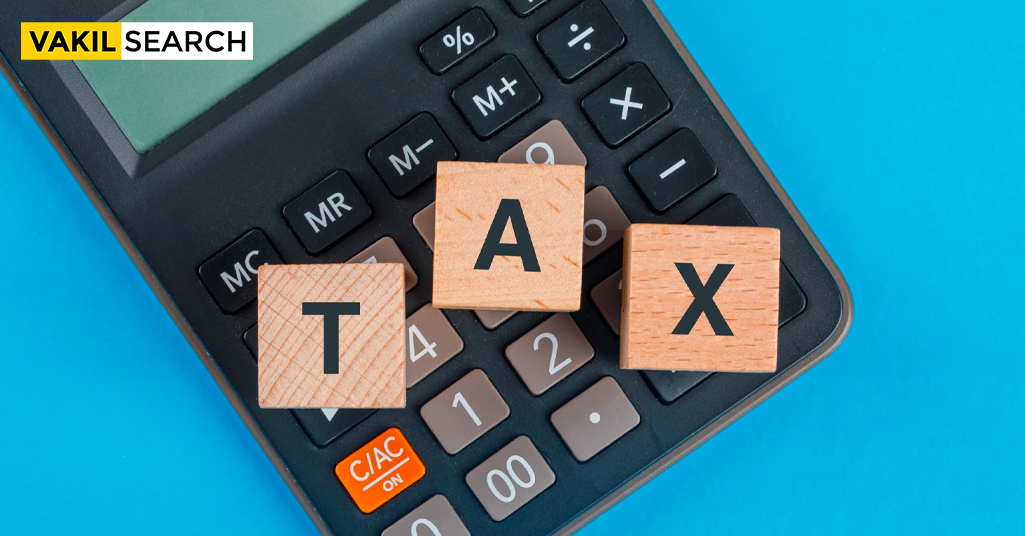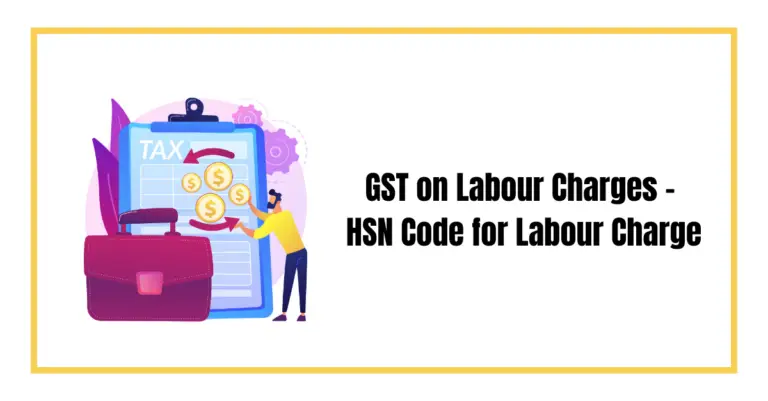Gujarat Value Added Tax Act, 2003 (VAT) applies to the entire state of Gujarat. As of the date the remaining provisions of this act come into force, the State Government may notify the Official Gazette that the remaining provisions shall take effect at once. The term "additional tax" refers to taxes leviable and payable under section 7 subsection (1A) or section 9 subsection (6).
VAT, or Value Added Tax, was introduced in 2005 to mitigate the cascading effect that came with the simplistic application of indirect taxes. The cascading effect refers to the inflation of tax paid as against tax due. Before VAT, sales tax was applicable flatly on the product’s price at every manufacturing stage. This methodology doesn’t consider that the price of a product includes the cost of tax borne by the seller while purchasing materials for the finished product. This means that tax is being calculated on tax which inflates the actual tax revenue of the government.
VAT In Gujarat Application Rates Returns Payment
On the other hand, Value Added Tax excludes the tax cost by introducing a credit system. For instance, if a manufacturer pays VAT of ₹ 30 per unit on the purchase of material for further processing, then the manufacturer is credited with ₹ 30 as VAT credit. When the manufacturer sells the goods and charges ₹ 50 per unit in VAT, then this amount is set off against the VAT credit already available with the manufacturer. So the manufacturer sets off ₹ 30 of VAT credit against ₹ 50 and deposits the balance ₹ 20 with the tax authorities, thus taking the cascading effect out of the picture.
VAT under GST
In 2017, when GST was introduced, it was introduced to streamline the entire tax structure and eliminate multi-point taxation. All indirect taxes were brought under the GST regime. VAT by itself had replaced Sales Tax. GST has now replaced VAT to a considerably large extent. However, unlike other indirect taxes, VAT remains active as three commodities were excluded from the purview of GST and hence continue to be taxed under the old VAT regime. These commodities are:
- Petroleum and oil products
- Alcohol for human consumption
- Electricity
The rationale for excluding these commodities was that these products fall under the state list of the constitution, which means all the revenue earned from the sale of those commodities is meant for the welfare and development of that state. Given that these three items generate the maximum revenue for almost every state, they were allowed to continue under the old regime to avoid crippling the country’s regional economies.
Applicability
Section 3 of the Gujarat Value Added Tax Act, 2003, provides for the levy and imposition of VAT and the conditions laid down therein.
The imposition of VAT depends on the following:
- The total turnover during the year immediately preceding the appointed day;
- Taxable turnover (collectively referred to as thresholds of turnover);
- Registration of a dealer.
Any business with a total turnover greater than ₹ 5,00,000 or a taxable income greater than ₹ 10,000 must register with the tax authorities for a VAT number.
It is also mandatory for all businesses registered under the Central Sales Tax (CST) Act.
Further, casual dealers and auctioneers having a taxable turnover of over ₹10,000 are also required to obtain Gujarat VAT Registration. Any other person wishing to start a business in Gujarat may also obtain Gujarat VAT registration voluntarily. Dealers applying for voluntary registration must deposit an amount of rupees twenty-five thousand in the government treasury.
All businesses selling petroleum and related products, alcohol or supplying electricity must apply for both VAT Registration and Central Sales Tax as per the procedure set down by the respective state government. In this article, we will focus solely on the procedure for VAT registration in Gujarat.
Rates
Since Gujarat is a dry state, i.e. sale of alcohol is prohibited, there cannot be any taxation in this category as far as Gujarat is concerned. However, the rate for VAT on the sale of petroleum and other goods is 19.46% of the total fuel price charged to dealers, excise duty and the average dealer commission. The rate of VAT on the supply of electricity is 15%. However, if electricity is supplied by a person who is not an authorised electricity transmission or distribution utility supplier, the transaction will be taxed at 18% under the GST regime.
Documents Required for Application
Attested copies of the following documents are to be attached to the application for registration
(a) Any one of the following documents for identification possessed by the
proprietor, any one of the directors of the company, any one of the
partners of the partnership firm or any one of the members of HUF and
Others,
(i) PAN Card
(ii) Passport
(iii) Identity card issued by the Election Commission of India
(iv) Driving licence
(v) Unique Identification Card
(b) Any one of the following documents for residential proof possessed by
the proprietor, any one of the directors of the company, any one of the
partners of the partnership firm or any one of the members of the HUF
and others,
(i) Passport
(ii) Identity card issued by the Election Commission of India
(iii) Driving licence
(iv) Unique Identification Card
(v) Last paid electricity bill (in the name of the applicant or his
parents or spouse
(vi) Last paid Telephone bill (in the name of the applicant or his
parents or spouse
(c) Any one of the following documents for proof of place of business in
the name of the applicant, his parents or spouse
(i) property card or property tax bill of last year,
(ii) copy of index-2 issued by the Sub-Registrar of stamp duties,
(iii) agreement or lease deed duly executed in case of the rented
Premises,
(iv) certificate issued by the local authority in respect of shops and
establishment,
(d) Following documents:-
(i) certificate issued by the registrar of companies and Articles of
Association in case of a company;
(ii) Partnership deed in case of partnership firm or HUF.
(e) copies of the challan for payment of the amount of security”.
Precision meets simplicity! Our GST Calculator Online streamlines tax calculations for smarter financial decisions. Start optimizing your taxes today!
Registration
The procedure for the registration of Gujarat VAT, as per the official technical guide, is as follows:
- The business has to apply for registration in Form 101 to the registering authority. Application for registration is to be made to registering authority in whose jurisdiction the dealer’s chief place of business is situated. A dealer applying for registration voluntarily or compulsorily has to deposit ₹ 10,000 as security by filling out challan Form 207. This amount will be returned to him within 2 years from the date on which the number is granted. However, the paid deposit cannot be adjusted against the tax payment due to the business entity.
- To obtain voluntary registration, a dealer is required to deposit ₹ 25,000 in the government treasury. The amount deposited can be adjusted against the future liability of Vat Tax, Vat Interest and Vat Penalty. However, it cannot be set off against any liability to pay CST.
- Registration shall be effective from the date he became liable to pay tax. However, in case of overdue application, GST registration shall be effective from the date he was liable to be registered under the GVAT Act, 2003 and not from the date of application, and penalty may be levied for late filing of the application. The assessment of the unregistered period will be done separately.
- Within three working days from the date of application, the dealer will get a provisional registration number, and within 30 days from the date of application permanent registration number will be issued. If the permanent registration number is not issued within 30 days, it is deemed that the provisional number has been converted into a permanent number.
- The Certificate of Registration is issued in Form 102 under the GVAT Act, 2003, and in Form B under the CST Act, 1956. Dealers can also apply for Tatkal Registration. For purposes of documentation, the procedure will be the same as above. However, in addition to documentation and security deposits by e-payment as above, ₹ 1,000 by e-payment for each registration as a processing fee will also be paid by the dealer. A provisional number will be issued within five working days, and a permanent one within 30 days from the date of online application.
Filing Returns
Depending upon the Goods as well as the amount of VAT to be paid, the payment of VAT varies in Gujarat.
Accordingly, monthly VAT returns are to be filed by:
- Dealers with more than ₹60,000 VAT payment in current or previous years
- Dealers having remission or refunds under Section 40 or 41
- Dealers who are exempt from VAT
- Manufacturers/Sellers of SEZs
Quarterly VAT payments are to be filed by:
- Businesses that pay a lump sum tax (VAT)
- Dealers with less than ₹60,000 VAT
Apart from monthly and quarterly returns, an annual return of VAT must be filed by 30 June if the turnover for the financial year is less than Rs. 1 crore and by 31 December for those businesses with a turnover of more than Rs. 1 crore.
Gujarat allows VAT filing to be done through their authorized website online.
The Due dates for the VAT filing are as follows:
- For monthly VAT payments: Within 22 days from the end of the earlier month.
- For quarterly payments: Within 22 days from the end of the quarter for which the payments are to be made.
Payment
The cycle for payment of VAT depends on the type of goods. Dealers who fall under Schedule 3 of the VAT Act (importers, exporters and dealers) or have a payment of more than ₹60,000 as VAT in the current or previous year, as well as dealers in SEZs and those dealers having refunds or remission under Section 40 or 41, need to pay VAT monthly.
The others can pay VAT quarterly and according to the due date set by the government.
Also, apart from the monthly and quarterly payments, the dealers need to file an annual return for assessment purposes, and the due dates are as follows:
- For dealers with less than ₹1 crore turnover: June 30th
- For dealers with more than ₹1 crore turnover: December 31st
Gujarat VAT can be paid offline and online through the Gujarat commercial Tax website.
Online Payment of VAT
Enter your details on the Gujarat Commercial Taxes website. You will be asked to fill in various details regarding the company, such as the address, phone number, Email ID, and the Taluk and district under which your firm operates.
When you fill in the details and confirm, you will be redirected to the bank kiosk to make the payment.
When paid, the site will generate an acknowledgement copy with both the transaction ID and the challan identification number.
Offline Payment
VAT in Gujarat can also be paid offline through specified banks across the state. One needs to visit the VAT office with all details, and a ‘Counter Payment’ can be made in person.
For physical payments, too, one must first register on the website and file tax. A challan or pay-in slip is generated once the process is complete. Using the challan, the payments can be made at specified banks over the counter.
All modes of payment, in cash, cheque, or demand draft, are accepted as physical filing/payment of VAT. All three documents, the acknowledgment received from the bank, from the commercial website for filing returns, and the pay-in-slip generated online, must be submitted to the circle office for the offline VAT payment process to complete.
Conclusion
Statutory and mandatory registrations are usually cumbersome and difficult. There are multiple forms for multiple circumstances, and even the forms have a lot of technical terms and requirements that may be challenging to understand for the untrained. That is why a business needs to engage a legal expert with hands-on experience with filings and registrations. If you have any more queries regarding VAT or need assistance with VAT, then contact our legal experts right away, and they will make sure that all your queries are resolved and all your requirements are met.










